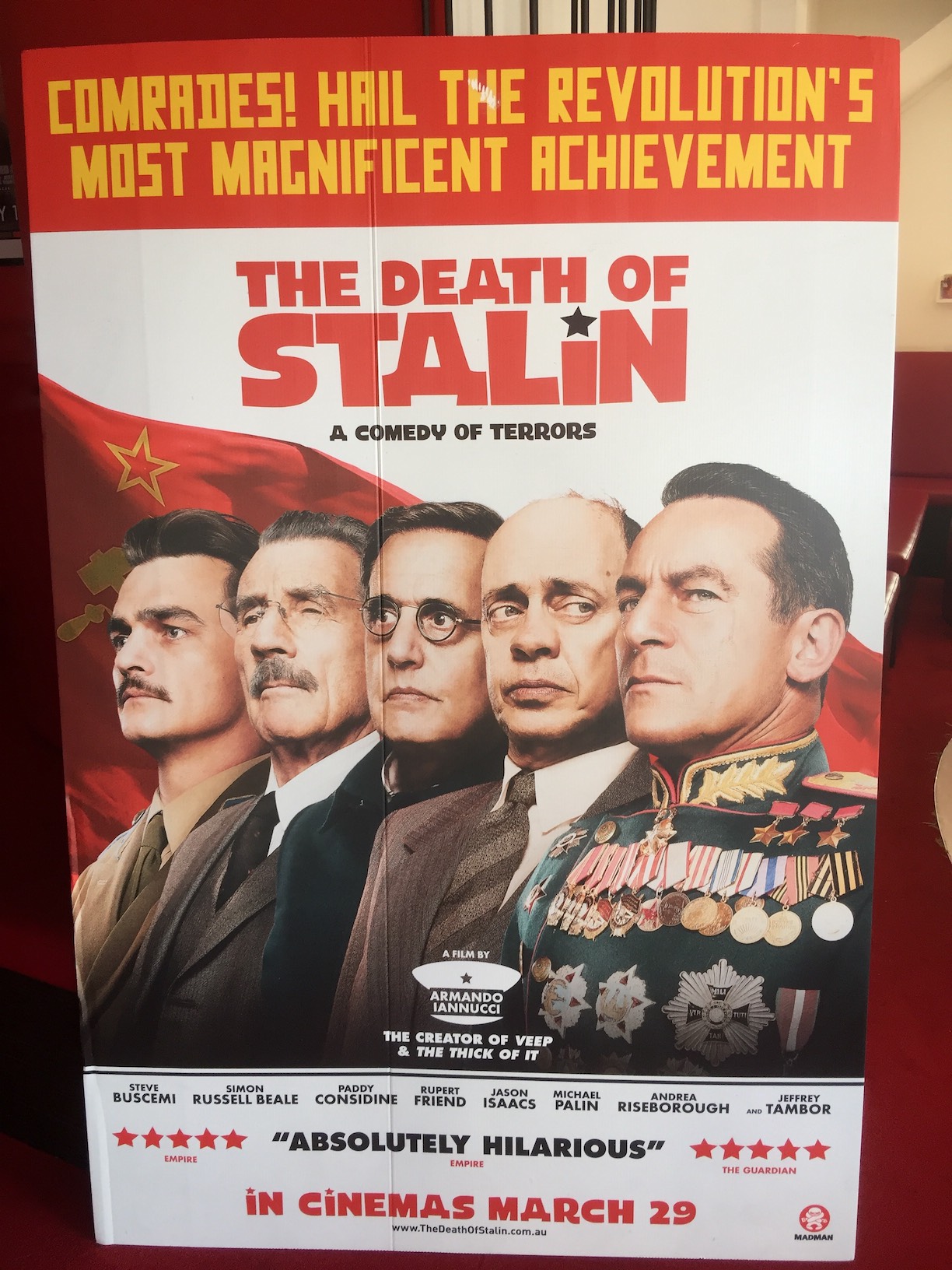The Death of Stalin – a lesson in chaos and black comedy
There is an interesting scene in the new film The Death of Stalin where one of Stalin’s ‘inner circle’ Vyacheslav Molotov loudly bemoans the possibility of his wife being returned from a gulag in Siberia, where she has been sent by Stalin for subversive activities.
In an eerily ‘Pythonesque’ scene, Molotov, convincingly played by Michael Palin (a founding member of the famous 1960s British comedy show Monty Python’s Flying Circus), continues to roundly denounce his wife, describing her as an enemy of the state and a spineless traitor.
The irony of this tirade – where a formerly loving husband quickly turns on his ‘traitorous’ wife – poignantly sums up The Death of Stalin.
The film is a chaotic and anarchic political comedy directed by acclaimed Scottish director Armando Iannucci and set in the final days of Josef Stalin’s regime in Russia in March 1953.
It both comically and tragically portrays the bloodshed and murder carried out under Stalin’s iron rule – while vividly showing the fear and terror felt by most of the Russian populace towards the dreaded dictator.
And there is no better example of the effect of Stalin’s ‘iron grip’ than in the scene depicted in the Moscow theatre, early in the film.
In the scene, the theatre technicians receive a curt and terrifying phone call direct from Stalin’s office informing them that the music-loving dictator wants to listen to a copy of the evening’s classical music performance immediately.
Unfortunately, they soon realise they had forgotten to record it – sending the entire back room staff into a frenzy as the entire evening’s performance has to be fully replayed by the orchestra.
And such is the chaos at the concert venue, that the entire audience is forced to stay on to witness the performance again, just to ensure the acoustics are correct for the recording.
Of course, Stalin is infamous in history for murdering millions of Russians throughout his 25-year ‘reign of terror’.
Using members of the dreaded Russian secret service (NKVD) as his assassins, Stalin systematically annihilated millions of Russians – simply because he disliked their occupation, political views or in some cases, even their surname.
His tyranny of course, knows no bounds, and the film does not hold back in the graphic depiction of his ruthlessness.
He is of course, ably assisted by his small entourage of trusted ministers, including the aforementioned Molotov; as well as the preening, image-obsessed Malenkov, (Jeffrey Tambor), and Nikita Khrushchev (brilliantly played by Steve Buscemi).
Simon Russell Beale’s portrayal of NKVD chief Beeria is the worst of the lot, and he gives a peerless performance as a scheming, conniving monster that has murdered countless Russians.
The real point of this film though is to satirise both the ridiculousness and stupidity of the people in charge, and the flawed system that allowed this absurdity to happen.
Of course, the farce becomes most pronounced when Stalin dies – leaving a huge power vacuum at the top of the Russian political hierarchy.
The farce continues as several of Stalin’s closest rivals jockey for the position of General Secretary.
The next few days are a comedy of errors as Malenkov is appointed Secretary General in Stalin’s place and the Russian people as always, are the losers.
A gripping black comedy, The Death of Stalin commences on Thursday March 29 at Luna Leederville and Luna Outdoor.
By Mike Peeters


